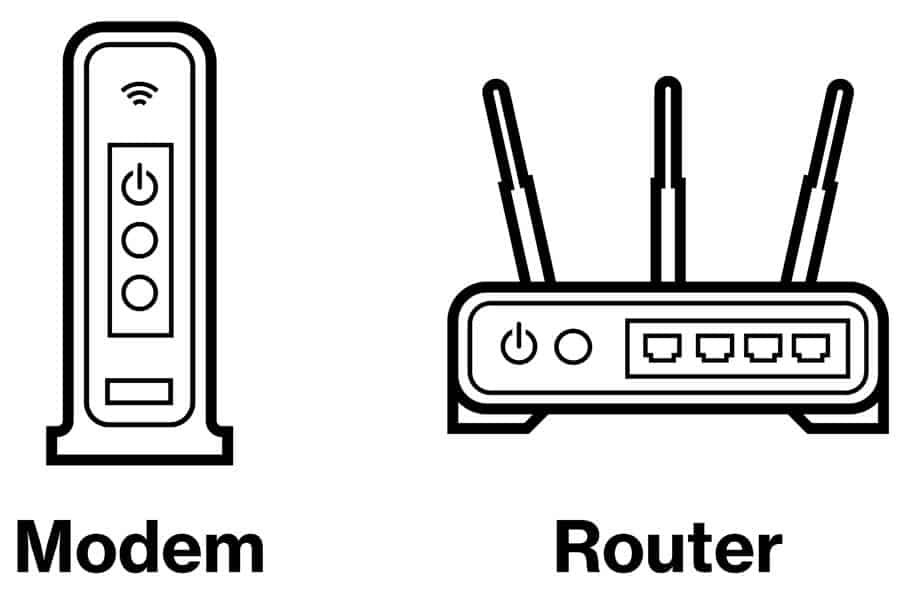For many, the modem is a mysterious device that doesn’t really get much attention paid to it when you’re considering your home internet setup. But it’s just as important as the other components needed to get a good wifi signal.
And as your gateway to the internet, it’s important that you keep your modem up to date. But just how long should you wait before replacing your modem? Well, that depends on a few different things that we’re going to look a little deeper in to now.
How often should you replace your modem?
The answer is that you should begin to look at replacing your modem around 3 years after you’ve bought it. If it’s working as normal, then there’s no need to replace it yet. By 5 years of solid use, you’ll probably want to replace your modem, as it may have become outdated by this point.
However, this is typically the case when we’re talking about a router/modem combo. This is what most people mean when they wonder when they need to replace their modem, although that’s not really what a “modem” is.
If you’re not entirely sure of the difference, then check out this guide to the differences between modems and routers. In the majority of cases, this is going to be supplied by your internet service provider. In the UK, it’s very common for your to use a new router/modem to connect to Wi-fi.

If you’re actually looking to replace your modem and not your router, then it’s unlikely you need to upgrade it. The truth is that with a modem alone, then you’re probably not talking about your typical home internet equipment.
In this case, you might not need get a new model for a long while, as often these kinds of modems can last much longer than this. It all depends on whether the modem is causing an issue or not. There are a couple of different telltale signs that you do need a new modem.
The first one is when your internet speeds start to decline, then you can potentially diagnose the cause as being your modem. Your modem will have a maximum speed capability that it supports, and if it’s very old, then it may act as a bottleneck on your home Wi-fi speed.
The second one is that it completely fails, or it’s made obsolete by your internet service provider. So you should know if it’s causing a problem, and if you need a new one. But let’s clarify whether you’re actually referring to a modem, router or a modem/router combination hub.
Do I need a modem?
It really depends on your home setup, and whether you already have a modem/router in place. In the vast majority of cases in the UK, you’re only going to need to worry about getting a router.
Why? Well, many of the hubs that people use across the UK are actually modems and routers. An example of this is the Virgin Media hub, which is both of these rolled up into one device.
So, if you’re with one of the major broadband providers here, then there’s a likelihood that you don’t need a modem.
Signs you need a new modem

As mentioned earlier, the likelihood that you need to replace a modem is very slim. They tend to be able to last for a long time, as they have a good build quality and are made with the future in mind.
If you’re sure that you’re using a modem in your set up, then there are some telltales signs that it might be time for you to replace it and get a new one in.
Potential Ways to Fix your Modem
Before you go ahead and get yourself a new modem, then there might be some ways that you can fix it first. Give these a go and see if they help to resolve the problem.
What to look for in a new modem
If you’re thinking about getting a new model, then make sure that you consider these factors before buying one.
Make sure that you can’t get one from your internet service provider first. In many cases, they’ll actually loan you a router or modem to use if you’re looking for one to use in your own home. This way, you won’t have to pay out for a new one.
Also, make sure that you stick with the more trusted brands that are out there on the market. Typically you can look for any of the big tech brands here, including Netgear, who are known for their home internet products.
When you’re buying a new route or modem, then you should also consider how many devices you’ll want to connect to your wi-fi. If it’s more than 15 or 20, then it could pay to opt for a tri-band model, as this gives you two 5.0GHz network bands to connect to.
Conclusion
In conclusion, like many other tech products out there, eventually things can get a little outdated. Although there’s no urgent need to update your modem, you can definitely see an improvement in performance if your modem is more than 4 or 5 years old. If it is, it’s probably about time that you replaced it.